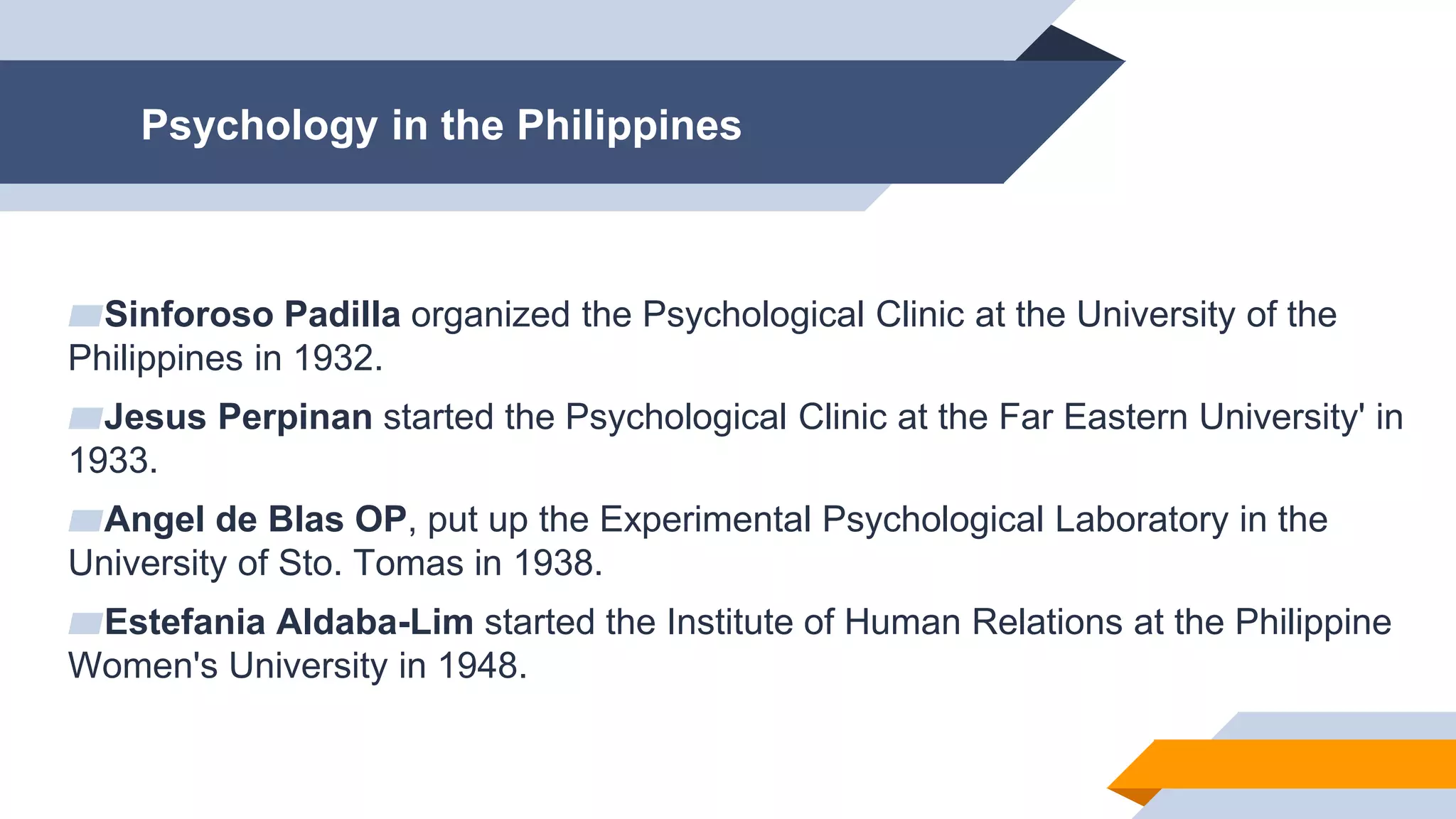Psychology is the study of the mind and behavior. It began as a branch of philosophy and has developed into a science using scientific methods like experimentation and observation. Some key figures in the development of psychology include Wilhelm Wundt, who founded the first psychology lab, and William James, who helped establish psychology as a science in the United States. Modern psychology includes many branches that study different aspects of behavior and the mind, such as developmental psychology, social psychology, and cognitive psychology. Researchers use various methods like introspection, observation, and biographical studies to better understand human thought and actions.















































